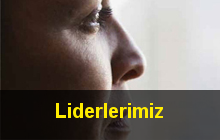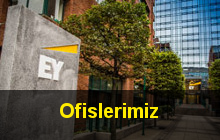
Significant Transfer Pricing Disputes – IV
Nigeria’s First Transfer Pricing Judgment
M. Akif Tunç - İpek Tanrıverdi
On February 19, 2020, the Nigerian Tax Appeal Tribunal delivered its judgment in Prime Plastichem Nigeria Limited (“PPNL”) case, which is significant as it is the first transfer pricing (“TP”) case in Nigeria. PPNL moved toward the tribunal having disappointed with the additional assessment in the amount of ₦1,738,481,875.33. This additional assessment was issued by the Federal Inland Revenue Service for both 2013 and 2014 and the Tribunal dismissed PPNL’s appeal completely.
To sum up, this company’s main business is trading of petrochemicals and plastics and it operates in Nigeria. In accordance with the provisions of the Income Tax Regulations No. 1 published in 2012, the company simultaneously prepared transfer pricing reports for 2013 and 2014 and submitted them to the Administration upon request. PPNL indicated that its only related party transaction in 2013 and 2014 was the “purchase of petrochemicals” from Vinmar Overseas Limited which is one of PPNL’s related parties. Since this related party also sells similar products to third parties in Nigeria, in the 2013 TP report, PPNL used internal comparables and applied the Comparable Uncontrolled Price Method (“CUP”) for determination of the arm's length price of the related party transaction. However, in 2014 PPNL applied the Transactional Net Profit Margin Method (“TNMM”) to analyze exactly the same transaction. The reason for this change was cited as the fact that Vinmar Overseas Limited did not conduct transactions with third parties in Nigeria in 2014, and therefore, comparable data were unavailable. After reviewing PPNL's TP reports, the authority did not find it appropriate for the company to select CUP in 2013 based on internal comparables and emphasized that TNMM was the most appropriate method for 2013 and 2014. Furthermore, the Administration has found it appropriate to use gross profit margin instead of operating profit margin (as applied by PPNL in TP reports) as a profit level indicator while applying TNMM. PPNL also raised objections on many procedural issues during the trial, but all of the objections were rejected on the basis of evidence. Taking into account all of these, the Administration has made an additional assessment of ₦1,738,481,875.33 (including penalties and interest) to PPNL.
This case is significant as it is Nigeria's first transfer pricing decision since the Transfer Pricing Regulations came into force in 2012. It was underlined that it is important to prepare a complete and unproblematic transfer pricing report that is in compliance with local legislations in order to reduce the risk. OECD Guideline suggests that “A methodical, consistent approach should provide some continuity or linkage in the whole analytical process, thereby maintaining a constant relationship amongst the various steps: from the preliminary analysis of the conditions of the controlled transaction, to the selection of the transfer pricing method, through to the identification of potential comparables and ultimately a conclusion about whether the controlled transactions being examined are consistent with the arm’s length principle…” and the result of this case actually supported this approach of the OECD.
Explanations in this article reflect the writer's personal view on the matter. EY and/or Kuzey YMM ve Bağımsız Denetim A.Ş. disclaim any responsibility in respect of the information and explanations in the article. Please be advised to first receive professional assistance from the related experts before initiating an application regarding a specific matter, since the legislation is changed frequently and is open to different interpretations.










 Başa Dön
Başa Dön